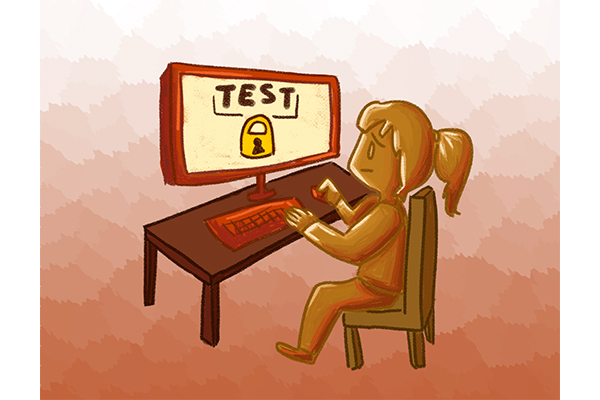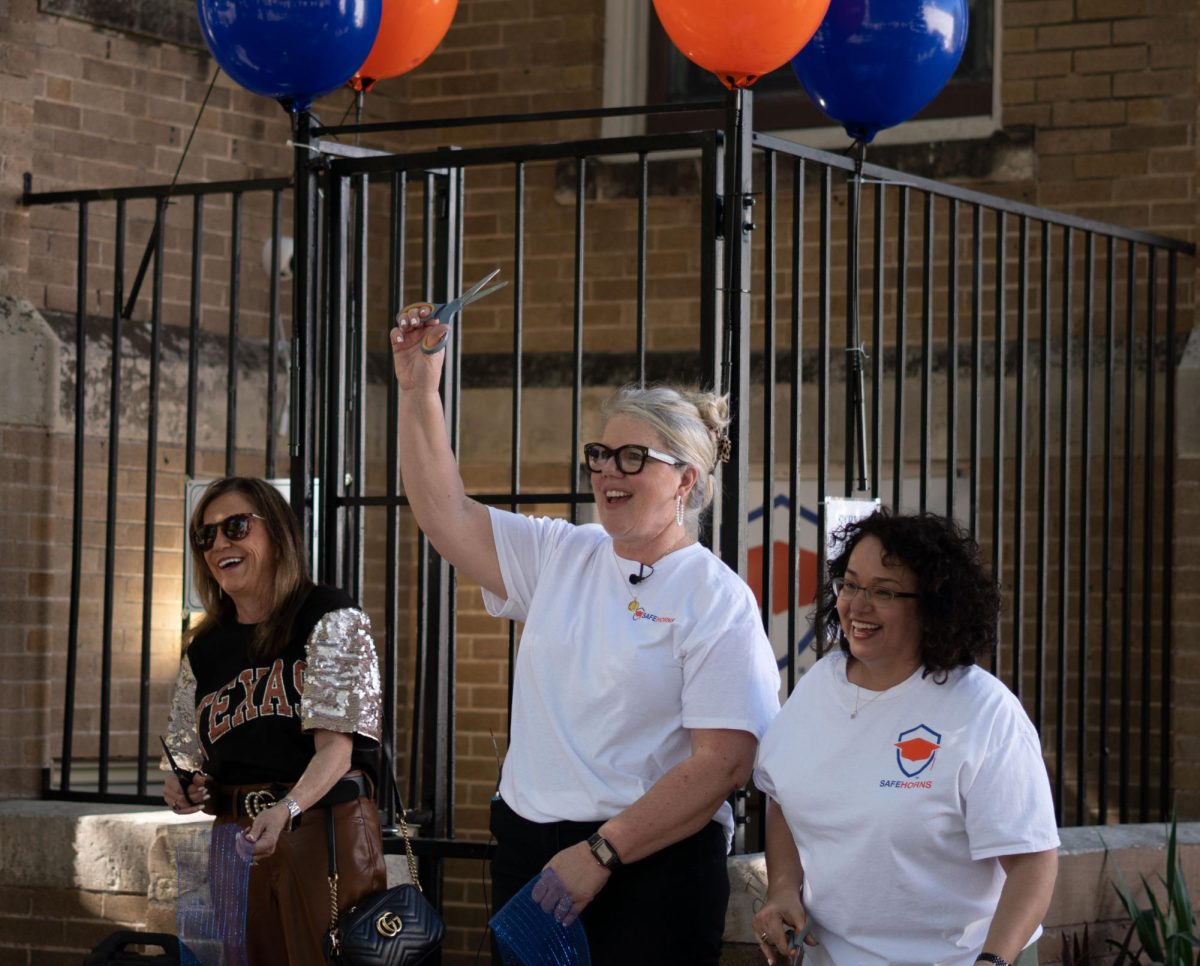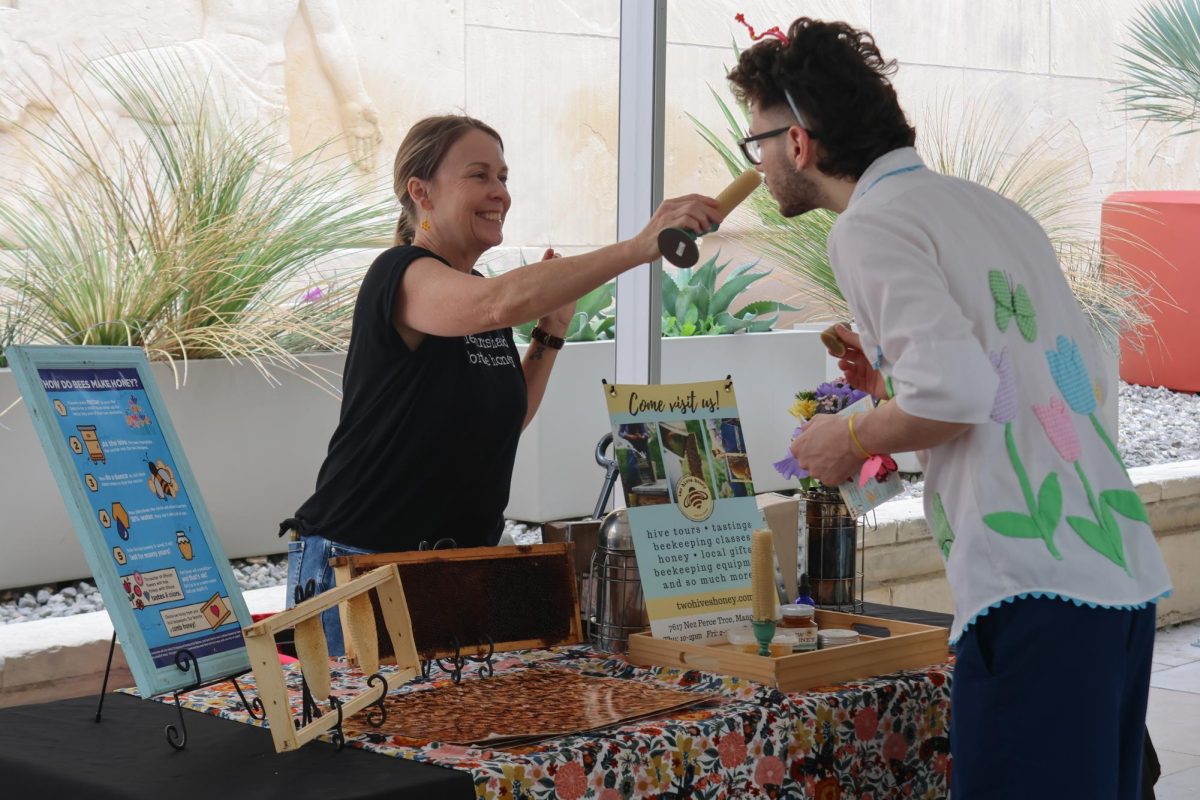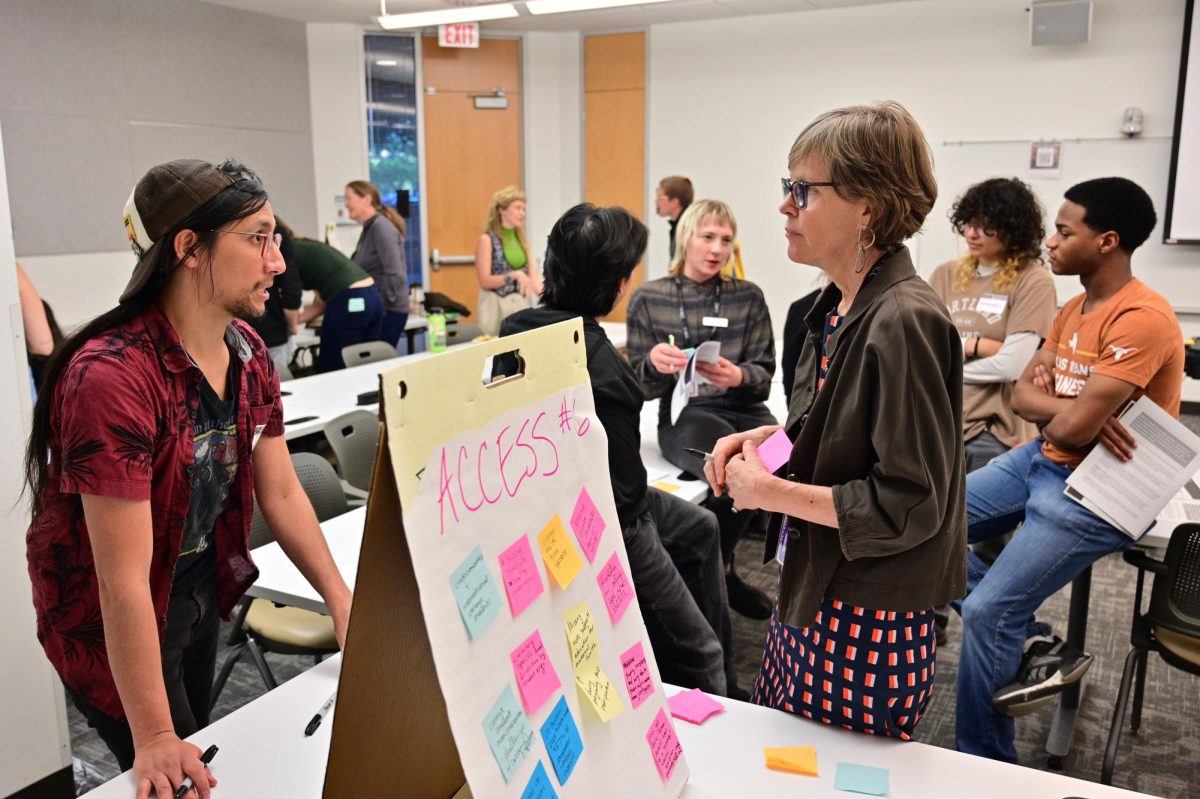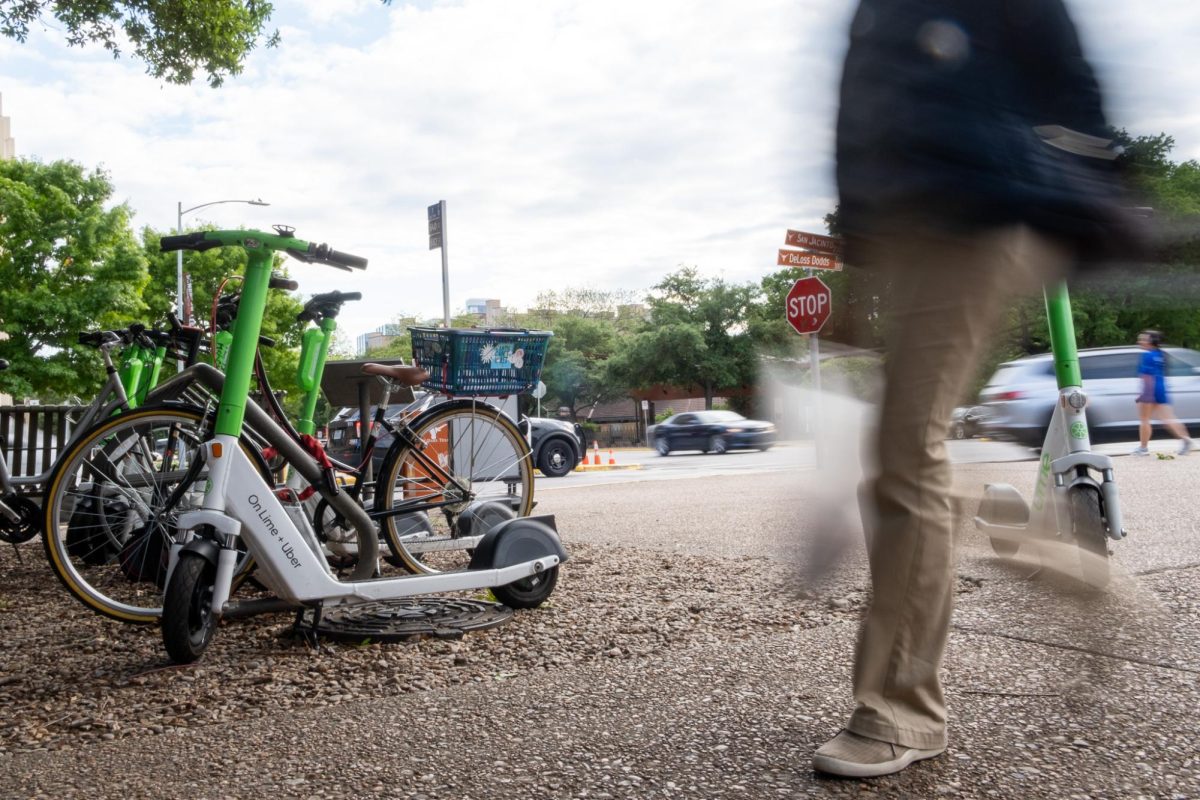Some students say using online proctoring programs can add a new layer of stress to exams, causing them to worry about “appearing” to be cheating.
These programs, such as Proctorio or ProctorU, monitor a student’s computer screen and track eye movement, physical movement and noise. If the program determines a student may be cheating, their test will be flagged for further review, according to their websites.
Susan Schorn, School of Undergraduate Studies writing flag coordinator, said the programs are flawed because a computer cannot accurately determine if someone is engaging in academic dishonesty.
“A computer may be able to tell you if someone's eyes move to the side, but they can't tell you why,” Schorn said. “They can't read facial expressions for emotional content, and they can't pick up any of the context of the human behavior surrounding what students are doing on camera.”
Economics senior Taylor Wissman said she was taking an exam with the door to her room open when her roommate came home. She said her roommate began playing music and walking past the door without knowing Wissman was in a test.
“I couldn't stand up and close my door to tell her I was taking a test because you can't leave the screen,” Wissman said. “The whole time I was freaking out that I was going to get flagged for cheating.”
However, Wissman said Proctorio motivates her to study and actually learn the material the test covers.
“I had a class where it was open book and I didn't really learn anything because I had my textbook and I could just find the answers in the textbook,” Wissman said. “With Proctorio, most of the time it's not open note, so you really do have to study and you actually are getting an education.”
Neuroscience sophomore Annisa Salsabila said sometimes she gets more nervous to use Proctorio than to take her test.
“In person, a proctor walking around knows if I'm looking up or looking to the side, I'm not cheating because they're a human,” Salsabila said. “They know that what I'm doing is just a natural movement.”
Other students say technical difficulties with the programs have been an issue. In the middle of her first exam using Proctorio, biology freshman Cara Fonken said the system crashed.
“I was too nervous to get on my phone and text people, ‘Is this happening to you?’ because it was monitoring my movements,” Fonken said.
However, Fonken said her professor was able to fix the issue.
Schorn said the main issue with the programs is they create a “nonsensical game of proving your honesty.”
“With proctoring software, being honest comes down to being able to sit still, which is a completely unrelated behavior to actual integrity,” Schorn said.
Schorn said despite the drawbacks of these services, many faculty are using them because they do not have time to prevent cheating through other methods, such as directly asking students questions on Zoom and having them answer the question live.
“When you see software like this deployed, it's usually because the class is too big for the instructor to be able to give individual attention to each student,” Schorn said.



